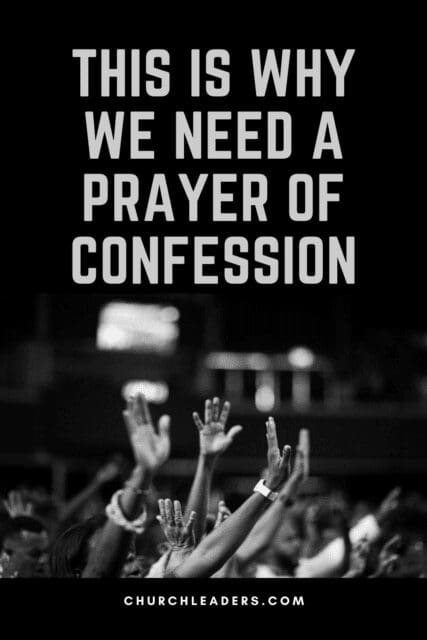None of us likes to dwell on the ways we have failed God and others. Yet the Bible is clear that confessing our sins, both privately and in public, is important, and it has long been part of church tradition for believers to recite a prayer of confession together. As teacher and writer Donna Jones says,
“Confession brings darkness into the light. We don’t need to tell everyone our sins, but we do need to tell God—and, on occasion, others. Secret sin becomes serial sin.”
Prayer of Confession: A Biblical Basis
There is plenty of biblical support for the idea that, as believers, we should be regularly confessing our sins. 1 John 1:8-9 says, “If we claim to be without sin, we deceive ourselves and the truth is not in us. If we confess our sins, he is faithful and just and will forgive us our sins and purify us from all unrighteousness.”
Proverbs 28:13 says, “Whoever conceals their sins does not prosper, but the one who confesses and renounces them finds mercy.” Psalm 32:2-5 describes the need for us to confess our sins to the Lord and the harmful effects of remaining silent about them. James 5:15-16 exhorts Christians, “Therefore confess your sins to each other and pray for each other so that you may be healed.”
Jones mentions several cases in the Old Testament where God’s followers say a prayer of confession. One interesting example occurs in Daniel 9, where it seems that Daniel is privately confessing sin, but doing so on behalf of the entire nation of Israel. In verses 4-5, he prays, “Lord, the great and awesome God, who keeps his covenant of love with those who love him and keep his commandments, we have sinned and done wrong. We have been wicked and have rebelled; we have turned away from your commands and laws.”
Nehemiah does something similar when he prays,
LORD, the God of heaven, the great and awesome God, who keeps his covenant of love with those who love him and keep his commandments, let your ear be attentive and your eyes open to hear the prayer your servant is praying before you day and night for your servants, the people of Israel. I confess the sins we Israelites, including myself and my father’s family, have committed against you.
And in Psalm 51, King David confesses his sins of adultery and murder, saying, “Have mercy on me, O God, according to your unfailing love; according to your great compassion blot out my transgressions. Wash away all my iniquity and cleanse me from my sin. For I know my transgressions, and my sin is always before me.”
Unfortunately, it is only too easy to gloss over our own sins and focus on those of other people, as Jesus warns us in Matt. 7. Not only would we like to avoid mentioning our sins in public, but it’s likely we do not spend enough time reflecting on them in private. One author makes this convicting statement: “Most of us are not reflective enough or open enough to really examine the destruction and pain our sin causes on those around us. If you can, think back to a time you really did hurt someone you care about and remember the grief you felt and the humility, contrition, that it produced in your life.”
The Corporate Prayer of Confession
Jones observes that while Daniel, Nehemiah, and David’s prayers might have been private at one point, they were written down for many people to read and were therefore quite public. Pastor Paul Alexander also sees a biblical precedent for a public, corporate prayer of confession. He notes that in Matt. 6:5-15, when Jesus tells his followers how they should pray, he does not give them an individualized prayer. Rather, he uses phrases like, “Our Father,” “our daily bread,” “forgive us our debts,” and so on. Alexander also lists multiple examples of public confession from the Old Testament, as well as the New. He concludes, “Confessing our current sins is important to both our individual fellowship and our corporate holiness. If there’s clearly a place for corporate confession in Scripture, then why shouldn’t there be a place for it in our churches?”
But ask yourself this: When was the last time when you were part of a group prayer in a church context, and the person praying asked for God to forgive the sins of those present? Try that sometime when you are the one praying. It will probably be awkward.
Yet a public and formalized prayer of confession has been part of many church traditions, although such prayers are by no means the only way believers can confess their sins to one another. For example, here is a prayer of confession from the Anglican Book of Common Prayer from 1662.
Almighty God, Father of our Lord Jesus Christ, Maker of all things, Judge of all men: We acknowledge and bewail our manifold sins and wickedness, Which we, from time to time, most grievously have committed, By thought, word and deed, Against thy Divine Majesty, Provoking most justly thy wrath and indignation against us.


